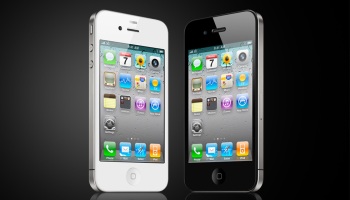Apple’s iPhone 4 Isn’t Really 4G

Apple’s tie to AT&T in the US means that the iPhone 4 doesn’t actually do 4G, but it does regain technological ground lost to Google Android devices
Apple’s 7 June announcement of the new fourth generation of the iPhone marks Apple’s effort to catch up in the smart phone space after being bested by a succession of Android-based devices that have more features, larger screens and things like multi-tasking that Apple has avoided.
The new iPhone 4 attempts to make up that ground by launching new features that attempt to move the iPhone to the next level.
It’s the basics that matter
 Whether the iPhone 4 accomplishes that move depends a lot on what you need in a smart phone. While there are a lot of snazzy features that may ultimately prove useful to some, it’s the basics that matter to most enterprise users, and the iPhone 4th Generation makes some improvements there.
Whether the iPhone 4 accomplishes that move depends a lot on what you need in a smart phone. While there are a lot of snazzy features that may ultimately prove useful to some, it’s the basics that matter to most enterprise users, and the iPhone 4th Generation makes some improvements there.
Most notable is a faster processor, the Arm A4, which was designed cooperatively with Apple to provide better performance to what could be a new round of resource-hungry apps. Also significant is a new, high resolution screen that features four times the picture density of the previous versions of the iPhone, and a significantly better antenna system that may help overcome the existing iPhone’s problem with dropped calls.
What’s missing is support for 4G wireless, or even the nearly-as-fast HSPA technology already fielded by T-Mobile and being built by AT&T. In fact, the iPhone’s 3G wireless capabilities are unchanged from those of its predecessor. However, the new version of the iPhone does support 802.11n, which will give the device a faster data rate as far as the wireless access point.
Whether that results in a faster connection to the outside world depends heavily on the speeds of the attached connection to your ISP. For many, it will be slower than the download speeds of 3G. What may or may not be related is the fact that the new iPhone failed to connect to Wi-Fi during Apple’s demo, while the 3GS version did it without trouble. A prototype issue? Perhaps.
Catching up with Android
Despite the speed penalty, the new iPhone does deliver on some much-needed improvements that bring it into parity with the Android devices. A significant improvement is that version 4 of iOS now supports multi-tasking. This apparently means you can check something on your device while you also talk on the phone.
The Apple announcement also says that the new iPhone will support multiple Exchange accounts, support for Exchange Server 2010, mobile device management and wireless application distribution. The Apple announcement also promised SSL VPN Support and better mobile data protection.